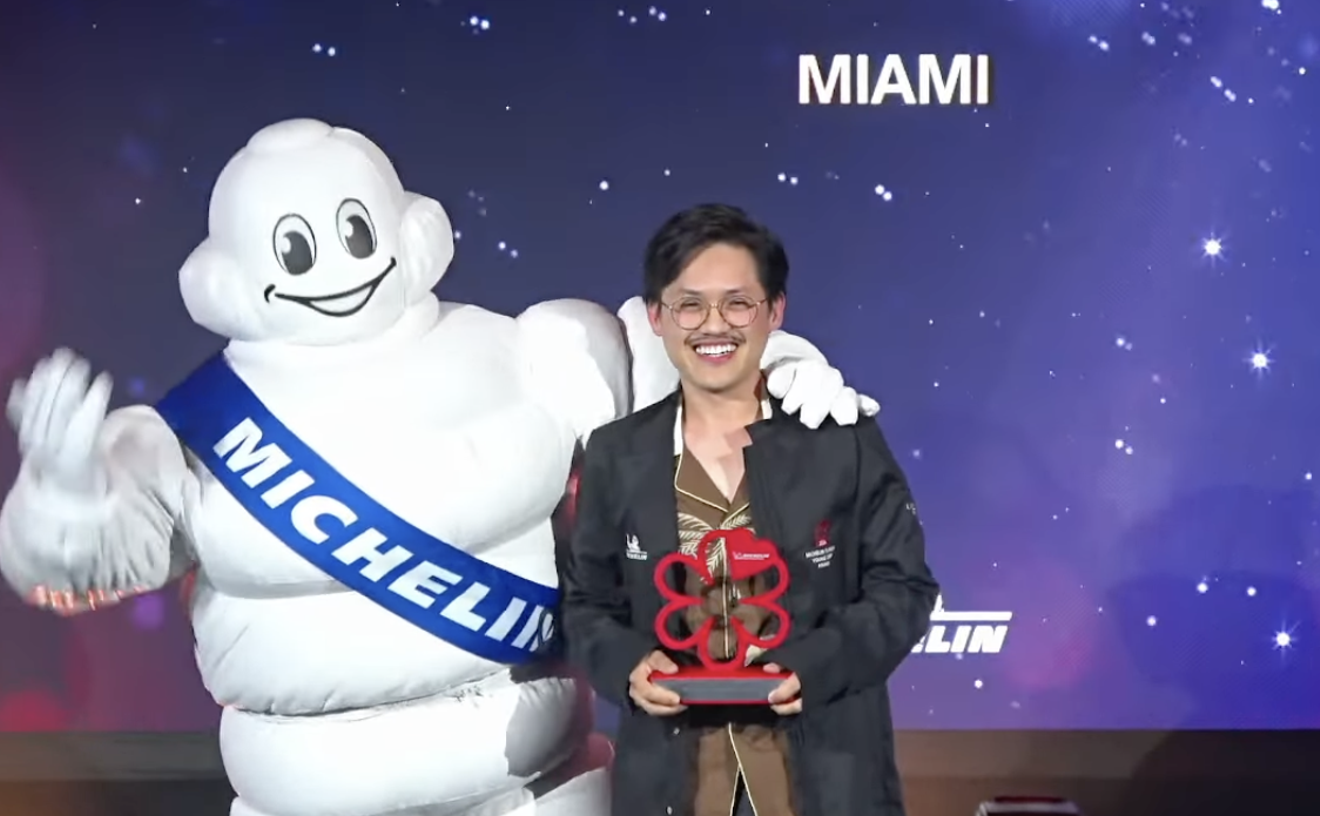Guess who was at the South Beach Whole Foods yesterday? The fat, slobby, autoimmune-diseased, party-hardy Aussie who vowed to consume nothing but organic vegetable and fruit juice for 60 days, emerging slim, trim, and completely healthy on the other side, that's who.
That long-winded description summarizes the recent life and work of Joe Cross, creator and star of the hit documentary Fat, Sick & Nearly Dead. At 310 pounds, Cross was an overfed, hard-drinking, cigarette-smoking businessman suffering from a rare skin disease called chronic urticaria. He took steroids and other pills to keep the disease's characteristic red hives from flaring up all over his face and body. When doctors told him (again) that he was on a path to an early and unglamorous death, he decided to change his life through a prolonged juice fast. He filmed his 60-day fast, during which he lost 80 pounds. By the end of the fast, he was also able to toss his meds in the trash; his weight loss and nutrient-dense diet were enough to keep his illness in check.
Cross is in Miami this week to answer questions about juicing and plant foods, to promote awareness of his film, and to discuss upcoming film and TV projects. For his South Beach Whole Foods appearance, the front of the store was packed as listeners, many of whom had come specifically to hear Cross speak, absorbed the director's message and asked him questions about juice fasting, or "rebooting," as Cross likes to call it.
He went over the basic principles behind fasting and juice fasting: that a cessation of digestion saves the body energy, which it can then redirect toward healing processes and repairs that had previously gone unaddressed. "When a horse is sick, it doesn't eat. When a 5-year-old child is sick, it doesn't eat. We're programmed not to eat when we're sick so the body has energy to heal."
He added that juice fasting simultaneously eliminates the need for digestion and saturates the body with micronutrients, giving it the microscopic tools it needs to efficiently make the aforementioned repairs. This is why many people turn to juicing as part of cancer treatment or the treatment of other serious or chronic illnesses.
Cross also said that weight loss should not be the goal of a fast. Instead, people on a reboot should focus on improving health. "You'll never stick to it if your goal is just to lose weight," Cross said.
He spoke about some aspects of his reboot experience that the documentary didn't cover, such as the day leading up to the beginning of his fast. Cross, incredibly anxious about the idea of going two months without chewing, went on a huge binge that lasted into the very last minute of the 11th hour before the start of his fast.
"I ate sushi. I had about 20 rolls, beers, that mochi ice cream they do. And then I went back up to my room. Then at about half past 11, I said, 'Well, I've got a half-hour left,' so I went down and I had a cheeseburger. No wonder I couldn't move for the first three days," he said, referring to the documentary's footage of him tossing and turning miserably in bed during days one through three of his juice fast. "I had all that stuff in me and no fiber to push it through."
People in the audience groaned. "I know," Cross went on. "If someone had told me a few years ago that I'd be standing in front of a group of people talking about bowel movements, I wouldn't have believed it. Now I can talk about the color, the consistency -- is it soft, is it solid, does it stick to the porcelain in the bowl? I can talk about shit all night."
One audience member, Christopher Michael Emmolo, raised his hand and shared with the group that he was 38 days into his own reboot, a journey he had been inspired to take after watching Cross's film. So far he had lost 36 pounds -- seven inches off his waist -- and made definite gains in health and vitality.
Emmolo said he has come far since Joe Cross sidled into his fat, sick life. "I was stuffing my face with some chips or something and I had a beer or a Scotch and was just totally sprawled out on the couch," the 39-year-old said. "I caught a glimpse of the commercial for the documentary, hit rewind, watched it, and was like, 'I gotta check that out.'"
He said his health was foundering and his moods were unstable before he began juice fasting. "At the time, I was constantly tired. I was irritable more often than not and lived a very sedentary lifestyle. My joke was that I wanted to get thin the same way I got fat. I wanted to look down one day and say, 'Oh hey, look, there's my toes! I missed you guys.' And that's been a joke running five years now. I looked in the mirror and I was like, 'Those are magnificent breasts. And they're mine.' And it gets kinda scary."
He went to the Join the Reboot website, watched the documentary (it's no longer free to watch online, but it is available on Netflix), and consulted with his dad, an internist (a doctor who specializes in disease prevention, detection, and treatment in adults) about whether a juice fast would be safe, considering he suffered from hypoglycemia and had fallen unconscious during a spell about two months earlier. "When I ate the wrong foods, my sugar would fall and then crash, and I'd start shaking. I'd get very disoriented. And one day when I didn't take care of it, I ended up passing out."
"My father is a very stoic individual. And he almost broke into tears when he saw how fat I'd gotten and when he saw how unhealthy I was. And he literally said to me: 'Christopher, please do something. Anything that helps you lose weight, I'm all for.'"
Beyond weight loss, the fast has helped Emmolo, like Cross, to ditch the prescriptions he had previously been dependent on. "I was taking 600 milligrams of Zantac a day[to treat a hiatal hernia], which is twice the recommended dose. Then I went to just 300 milligrams a day, with just a few Tums in between. Then I went to no milligrams a day, with just a few Tums. And now I'm not taking any of that stuff. In the past ten days, I've had exactly four Tums, which for me is a big deal. And I haven't had any problems with my sugar the whole time."
A lot of people report increased energy and sensory perception while fasting, and Emmolo is no exception. He said he's now running circles around his trim girlfriend on the tennis court, and his senses are on high alert. "It sounds pretty crazy, but my sense of smell is much better, my sense of taste is much better. Even my hearing. I haven't been asking you to repeat yourself nearly as often as before," he said to his girlfriend, who agreed.
After the fast is over, Emmolo has a plan to avoid regaining weight and to extend the health benefits of the fast. After 45 days of fasting, he'll move onto 45 days of a strict whole-foods vegan diet. Beyond that, he might slowly incorporate a small percentage of animal foods.
"It's funny -- even though the fast is almost over, I don't think of it as 'having the end in sight.' For me it's a whole other beginning," Emmolo said.
If you missed Cross in South Beach yesterday, you can still catch him Friday when he speaks at Whole Foods in Coral Gables. His presentation will begin at 6 p.m.
Follow Miami New Times on Facebook and Twitter @MiamiNewTimes.










